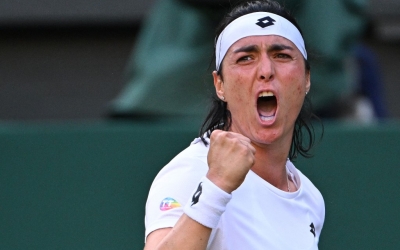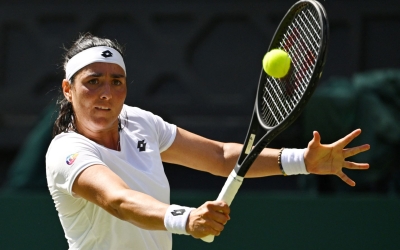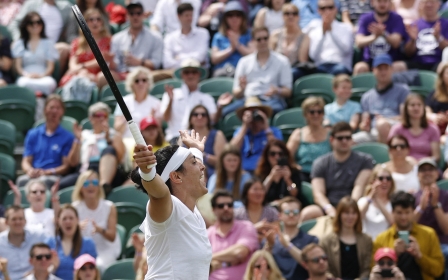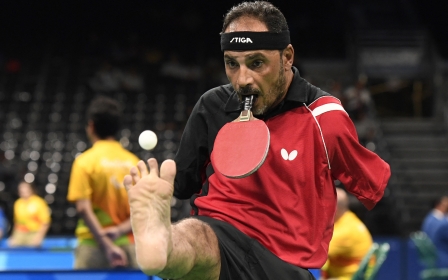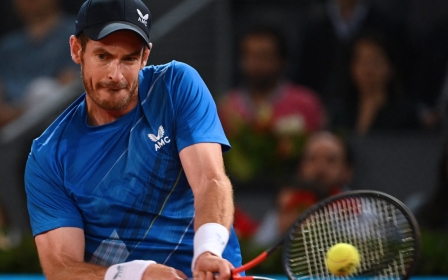Ons Jabeur: Tunisian record-breaking tennis star's rise to the top
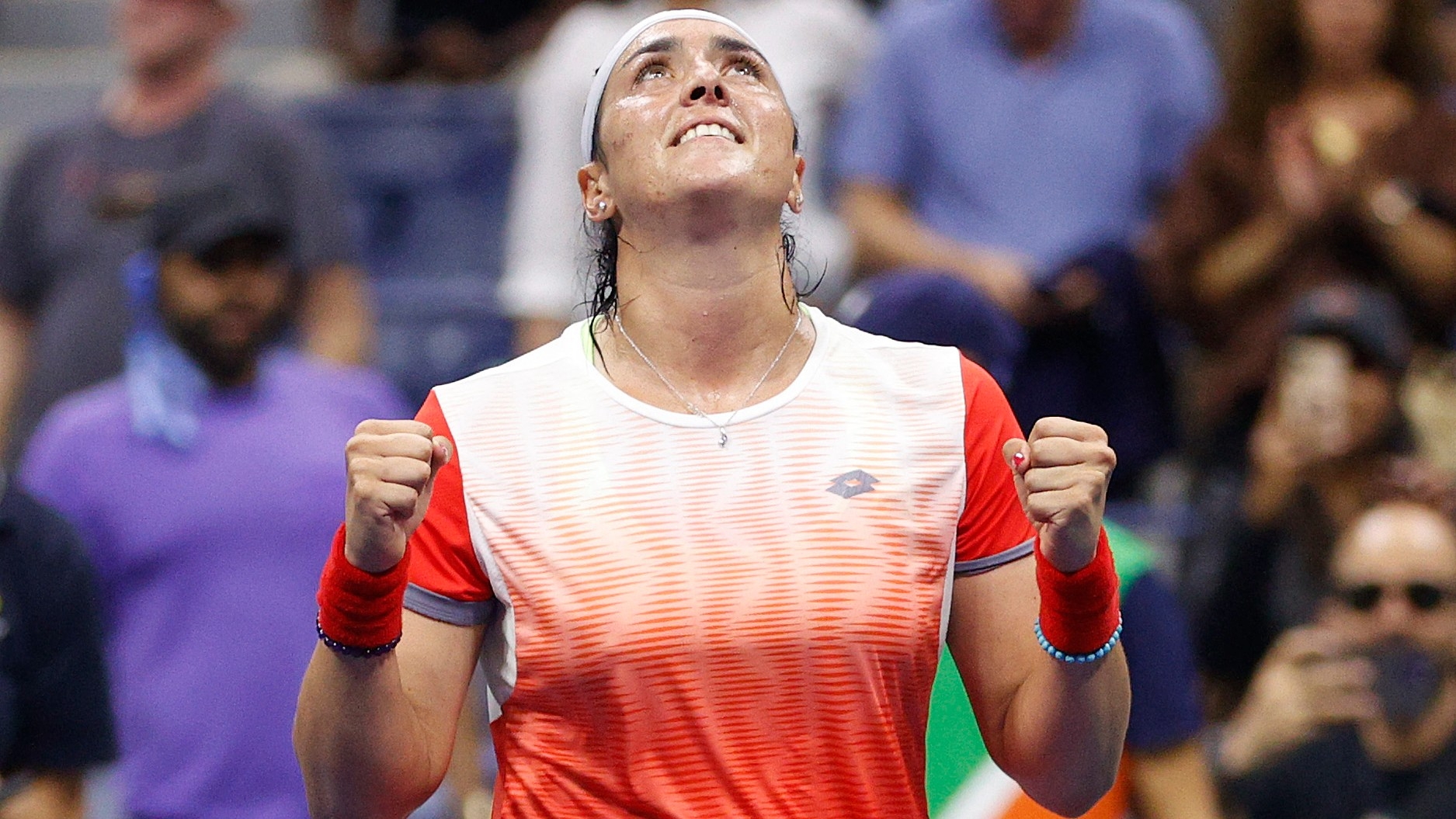
Ons Jabeur is through to the semi final of the US Open - setting a new milestone for the Tunisian tennis sensation who never tires of breaking records.
With victory over Australia's Ajla Tomljanovic in New York on Tuesday night, Jabeur became the first African woman to reach the last four at Flushing Meadows in the Open era.
The Tunisian now faces Caroline Garcia on Thursday in her attempt to reach back-to-back Grand Slam finals following her sensational run at Wimbledon earlier this summer.
New MEE newsletter: Jerusalem Dispatch
Sign up to get the latest insights and analysis on Israel-Palestine, alongside Turkey Unpacked and other MEE newsletters
Her late night success under the lights on the Arthur Ashe Stadium marks the latest in a string of groundbreaking firsts for Arab and African tennis players.
Middle East Eye takes a look at Jabeur's decade-long rise through the ranks, from promising teenage prodigy to global superstar.
'We didn't expect it'
Jabeur was born in Ksar Hellal, a small town in northeastern Tunisia, and grew up in the nearby larger coastal city of Sousse.
At the age of three, she was introduced to tennis by her mother, who played the sport recreationally. She often trained in hotels and tourist resorts, owing to the lack of courts in local tennis clubs.
"Her parents have done everything possible to support her, and sometimes spent more money than they had. Yet we did not expect her to go far," her uncle Mohamed Jabeur told MEE in July.
"We simply could not imagine that she would be able to match up with rivals from countries which, contrary to Tunisia, invest in sport."
Jabeur began competing in national tournaments aged six, and internationally four years later. Aged 12, she moved 90 miles to the capital Tunis where she trained at Lycee Sportif El Menzah, a multi-sport national academy for emerging Tunisian talents.
She made her debut in a junior Grand Slam tournament at the US Open in 2009, and the following year reached the final of the junior French Open.
It was in 2011 when she came to international attention, winning the French Open girls' championship to become the first ever Arab woman to win a junior Grand Slam title and the first Arab since Egypt's Ismail El Shafei won the Wimbledon boys' tournament in 1964.
Steady progress in early years
Jabeur ended her junior career at Wimbledon in 2011, entering the senior tour full time.
She spent most of the beginning of her career playing on the ITF women's circuit, a level below the WTA main draw.
After a slow initial start following her youth success, the Tunisian won a string of ITF titles in 2013, breaking into the world's top 200.
She qualified for the main draw of the 2014 US Open and 2015 Australian Open, losing in the first round of both.
In 2017, she participated in all four Grand Slam singles events, reaching the main draw of three of them.
A year later, she made it to her first WTA final at the Kremlin Cup in Russia, defeating several players ranked above her to climb to a career high ranking of 62.
By 2019, she was receiving off the court accolades too: the Tunisian was awarded the honour of Arab Woman of the Year at a ceremony organised by London Arabia, a UK-based NGO.
"Ons is a real role model," Jabeur's cousin Nour told MEE. "Other young people try to copy her. She inspires, gives hope and makes young people more ambitious. Not only in sport, but also in work, in everything."
Title wins and Grand Slam success
After staying in the world's top 100 through all of 2019, Jabeur made her most significant breakthrough in 2020.
She reached the quarter final of the Australian Open that year: the furthest a North African and Arab woman had ever reached in a Grand Slam - topped only by her own subsequent successes.
In June 2021, following the Covid-19 pandemic season suspension, she defeated Russia's Daria Kasatkina to win the 2021 Birmingham Classic. In doing so, she became the first Tunisian and Arab to win a WTA title.
Jabeur's most significant title came earlier this year, when she won the 2022 Madrid Open in May - becoming the first African and Arab player to win a title at the WTA 1000 level.
Two months later, she captured the hearts of international audiences once again when she reached the final of Wimbledon, becoming the first Arab - man or woman - to reach a Grand Slam final, and the first African woman to reach the final.
She lost to Elena Rybakina of Kazakhstan, but reached a career-high ranking of No. 2 nevertheless. It made her the highest ranked African and Arab tennis player in history.
Jabeur will hope to add the most significant feather in her ever-expanding cap later this week by becoming the first Arab and African player to win a Grand Slam title.
Middle East Eye delivers independent and unrivalled coverage and analysis of the Middle East, North Africa and beyond. To learn more about republishing this content and the associated fees, please fill out this form. More about MEE can be found here.


